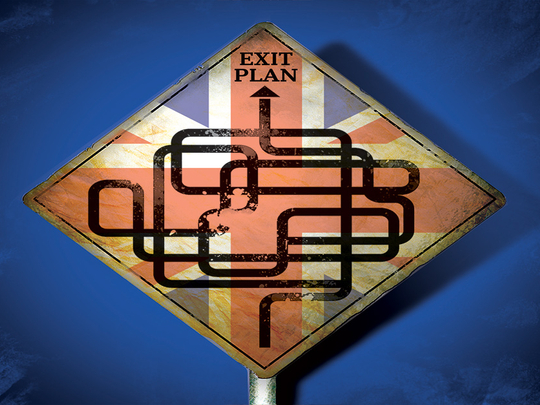
As the two-month anniversary of June’s landmark Brexit referendum approaches, key elements of the UK’s negotiating plan to leave the EU are now becoming clearer. UK Prime Minister Theresa May has indicated that her government is likely to play a long game by not seeking to trigger Article 50, which is the formal mechanism for bringing about the withdrawal process, until next year.
Her tactics are wise as the massive scale of the negotiation is becoming clearer. The reason why the challenge is so great is that, as recent analysis from LSE IDEAS (the Centre for International Affairs, Diplomacy and Strategy) at the London School of Economics has revealed, the Brexit referendum triggered not one, but some nine overlapping negotiations to contend with. Collectively these comprise discussions centred within the United Kingdom, between the United Kingdom and the EU, within the EU, and also internationally, and collectively could be very protracted.
Indeed, it is even possible that Article 50 will not be triggered until the second half of 2017 after the French and German elections. This is because some elements of the UK government believe that the negotiating positions of both Paris and Berlin will be tougher toward London prior to the ballots than afterwards given the election-year pressures French President Francois Hollande and German Chancellor Angela Merkel will face.
It has also become evident that the preferred option for some UK citizens — that of rejoining the European Free Trade Association (EFTA) of which it was a founding member in 1960 — may not be possible. This is because Norway has indicated it may seek to discourage that possibility owing to the fact that the United Kingdom rejoining EFTA (a small club of nations — Norway, Iceland, Liechtenstein and Switzerland — which have access to the European single market) could dramatically skew the balance of power within it. Senior Norwegian government members are to hold talks with David Davis, the UK’s new Brexit minister, in the next few weeks.
Once UK negotiations formally begin with the EU, a key area of contention will be what, if any, trade-offs can be agreed over the political need for May to be seen to secure curbs on free movement of people in exchange for diminished access to the EU’s Single Market on which a significant array of British jobs and investment depend. So far, she has said nothing concrete as prime minister about what her views are on this, nor what alternative model (EFTA or otherwise) she wishes to adopt with the EU instead of the existing full membership.
Indeed, the main UK government announcement, to date, that has been made post-Brexit referendum came on August 4 when the Treasury confirmed that that around £4.6 billion (Dh21.87 billion) in current EU funding per year will, until 2020, be safeguarded for universities, businesses, farmers and run-down areas. It is possible that more insights on the UK government’s post-Brexit thinking will come either at a special EU summit in Bratislava in mid-September, or the UK Conservative Party conference in early October, including in May’s key note speech.
As the prime minister and her government are discovering, the complexity of the exit negotiations will be of an incredibly high order to finalise before the next scheduled UK General Election in May 2020. Hence, why she may well be tempted later this year or next to try to engineer an early ballot if polls show she would win a larger majority and new five-year term.
Either way, the government is likely to find it very hard to find an alternative model, which can secure consent from other key parties, that comes close to providing the same balance of influence and advantages that Britain gets from its current status inside the 28-member union. For all the EU’s flaws, and it has many that need to be better tackled, the United Kingdom now enjoys a uniquely positive position in what is the world’s largest political and economic union.
For instance, Britain has all the benefits of the Single Market economic powerhouse, but is not part of the Eurozone; it has retained a budgetary rebate and ensured it cannot be outvoted by Eurozone countries against UK interests. And Britain is not part of the Schengen border-free area too which means it operates border controls with other EU member states.
The stark reality is that, while the nature of bilateral agreements with the EU vary, all have major disadvantages, including the fact that none of them provide full access to services which accounts for 80 per cent of the UK economy. Take the example of Norway which has considerable access to the single market. In exchange, it is required to adhere to EU rules without having a vote on them as EU member such as the United Kingdom does now; it accepts free movement of people; makes contributions to EU programmes and budgets; and still is required to do customs checks on goods crossing into the EU.
Moreover, such bilateral agreements with the EU generally take years to negotiate, with no guarantees that the United Kingdom would obtain terms as good as those today. Further, preferential access to 53 markets outside Europe with which the EU has Free Trade Agreements would come to an end, or need to be eventually renegotiated one-to-one in coming years. And outside of the economic realm, May knows that the EU talks offer no guarantees that Britain could replicate existing cooperation in areas like security.
Taken overall, it seems increasingly possible that the UK will play a long game Brexit negotiating strategy. This could see the invoking of Article 50 being delayed potentially for another year, although barring an early general election, May will want to finalise negotiations in 2019, in advance of the currently scheduled 2020 ballot.
Andrew Hammond is an Associate at LSE IDEAS (the Centre for International Affairs, Diplomacy and Strategy) at the London School of Economics.










